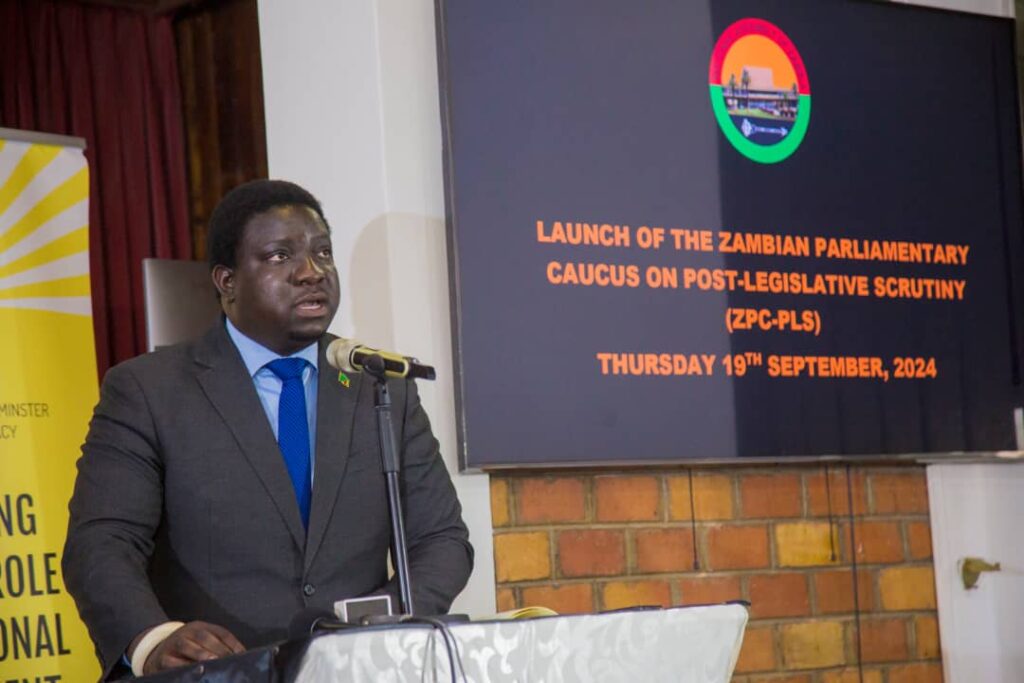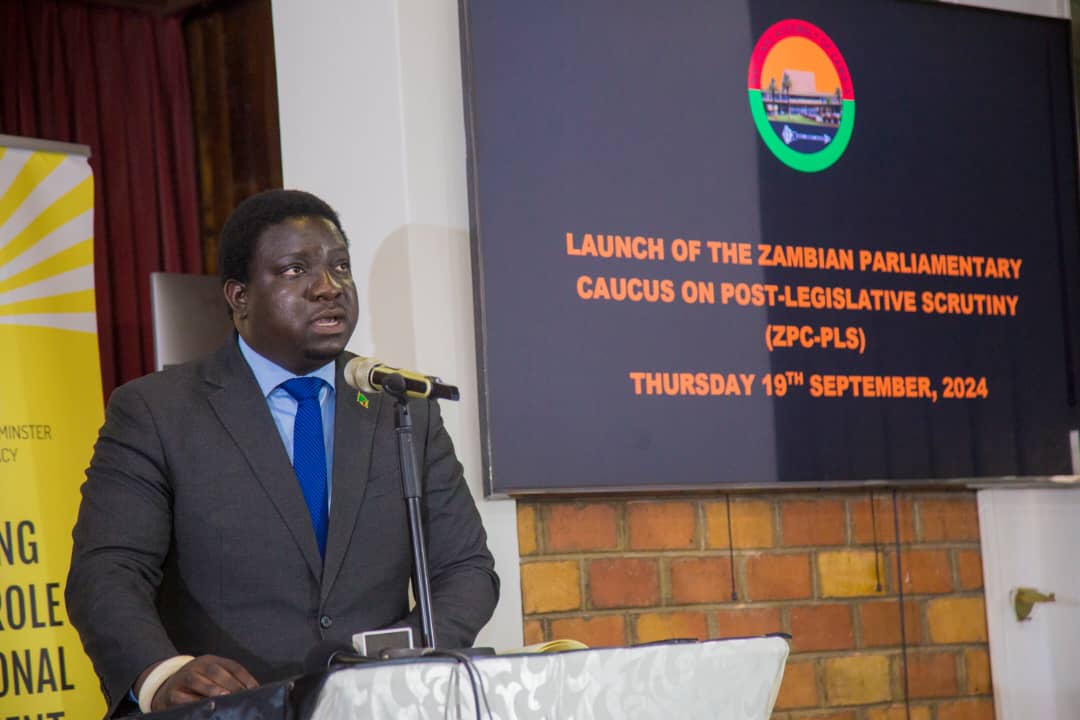
By Hon. Imanga Wamunyima Jr, MP for Nalolo and Chairperson, PLS Caucus
Since its establishment in March 2024, the Zambian Parliamentary Caucus on Post-Legislative Scrutiny (PLS) in collaboration with the Centre for Innovating Development (CIDE) has been reviewing the Food Reserve Act No. 6 of 2020. This review forms part of the mandate of PLS, which is to assess whether existing legislation is achieving its intended objectives and benefiting the people it was designed to serve.
The publication of our PLS Study on the Food Reserve Act is timely, coinciding with the anticipated presentation of an amendment bill to Parliament by September this year. The need for such a revision is urgent, following the devastating drought of 2023 that affected 84 of Zambia’s 116 districts. Over one million farming households were impacted, leading to severe crop failures across nearly half the nation’s planted area. This food emergency has laid bare the vulnerabilities in our food security systems and the need for immediate legislative and policy reforms to fix it.
The Caucus research highlighted the importance of establishing a more transparent and data-driven approach to calculating strategic grain reserves. These reserves must be based on actual national food security needs as outlined by law, rather than on fluctuating budgetary allocations. Such predictability is essential for long-term planning in the agricultural sector.
We also believe the Food Reserve Agency (FRA) should refocus its mandate strictly on managing and holding the national reserves. It should not be engaged in direct market trading or exports, which are better handled by private actors or designated trading agencies. FRA’s purchase prices should be used only to support the acquisition of reserves, and not to influence overall market prices.
Another critical element of reform involves ensuring that the Minister of Agriculture designates crops for strategic reserves well ahead of each planting season, using a statutory instrument as required under the current law. This process must recognize Zambia’s diverse farming periods such as rain-fed, irrigated, and winter cycles and take into account agro-ecological variations across the country. Doing so would help farmers make informed planting decisions and promote climate-resilient practices. Climate science demands we evolve to the changes our farmers are facing.
Furthermore, we are calling for an updated and inclusive definition of food security in the new Act. Relying exclusively on maize is no longer sufficient to meet the diverse dietary and nutritional needs of the country. There must also be greater support for farmers, including training on proper storage techniques, encouragement of crop diversification, and investment in better storage infrastructure.
Finally, improvements are needed in the verification of national food stocks. The process should be faster, more transparent, and include FRA inspecting private storage facilities without the requirement for ministerial authorization. This would enhance the accuracy of data on food reserves and help prevent shortages ahead of time.
In addition to these proposals, the PLS Caucus has submitted recommendations to the Ministry of Agriculture regarding two other key pieces of legislation: the Agricultural Credits Act No. 35 of 2010 and the long-delayed Agriculture Marketing Bill of 2012.
The Agricultural Credits Act, though designed to improve agricultural financing through warehouse receipting and collateral-based lending, continues to exclude many rural farmers. These challenges stem from poor road networks, inadequate warehousing, and limited access to digital tools and information. Many farmers in rural Zambia still operate on customary land without title deeds, leaving them unable to participate in formal credit markets. The absence of digital warehouse receipts further erodes transparency and discourages farmer participation.
To address these issues, we recommend the adoption of digital warehousing systems, improved rural infrastructure, and alignment of the Act with Zambia’s climate change strategies. Greater public awareness is also critical, especially through the dissemination of information in local languages. We propose the introduction of flexible loan repayment terms that reflect crop cycles and the registration of movable agricultural assets such as crops, livestock, and machinery as acceptable collateral. Additionally, we advocate for crop diversification incentives and pilot programs that use government-owned banks to boost confidence in the warehouse receipting system.
Turning to the Agriculture Marketing Bill of 2012, the Caucus is deeply concerned that this vital piece of legislation remains unenacted. The bill is essential for formalizing agricultural markets, safeguarding smallholder farmers, and ensuring fair trade practices. Among its proposals are the establishment of the Zambian Agricultural Marketing Advisory Council, digitization of transactions, investment in market infrastructure, and the registration of all market actors. The bill should also align with Zambia’s broader development and climate resilience goals.
In conclusion, the PLS Caucus is committed to advocating for laws that strengthen Zambia’s food systems, empower smallholder farmers, and ensure resilience in the face of climate change. These recommendations—already endorsed by the multi-party Caucus prior to the release of our report in November 2023—will be submitted to the drafting committee and shared with the full House during debate on the new Food Reserve Act Bill.
As a Caucus in collaboration with CIDE, we look forward to working with all stakeholders to ensure that our laws are responsive, future-proof, and rooted in the real challenges and opportunities facing our agricultural sector.








